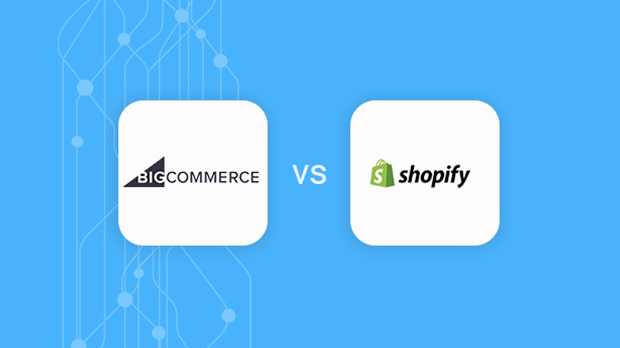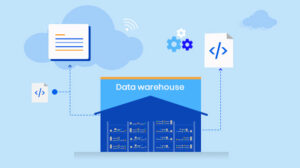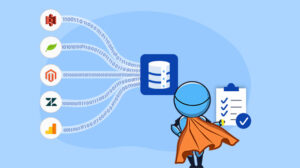About BigCommerce and Shopify
BigCommerce and Shopify are the two most important platforms in the universe of hosted eCommerce software. Bigcommerce vs. Shopify may seem cumbersome. The critical aspect to understand is the target customer of each forum. This makes the comparison between Bigcommerce and Shopify very clear.
BigCommerce focuses on large online stores and brands. Managing a large volume of SKUs and content is very easy with BigCommerce. Shopify is suitable for the small operations of boutiques or drop shipping operations, or small merchants. Both platforms are scalable and versatile, and some of the largest retailers use these platforms. Once this is understood, an objective comparison between Bigcommerce and Shopify can be made quickly, and you can decide which is more suitable for your e-commerce business.
BigCommerce Vs. Shopify, choosing the right eCommerce cart is a critical decision. All platforms are not similar, and one may need the option to customize code or specific off-the-shelf features. We have researched and built a detailed comparison of critical elements so merchants can decide based on their priorities.
BigCommerce Vs. Shopify: Comparison
Some key areas for comparing Bigcommerce vs. Shopify are listed here, based on which we will be deep diving into our comparison
- Page performance on Mobile and Desktop (Load Times)
- User-friendliness and Content management system reliability
- Themes and customizations
- Marketing & Sales features for upselling and cross-selling
- Search engine optimization features
- Site search
- Payment Gateway Integrations
- Analytics Reports
- Customer Support
- Plans and Pricing
1) Page performance on Mobile and Desktop
Page performance, i.e., loading times on different devices, can impact user experience. This also has a direct impact on the revenue of your online store. If you have a few thousand users visiting your site daily, a fractional improvement in the loading times can impact revenues. Additionally, Google’s search engine places significant weightage on site loading times in its ranking algorithms.
Our test shows that Shopify’s load time for similar products and content on pages is a little bit faster than BigCommerce. Though the difference is minuscule on mobile, on desktop Shopify has better performance.
Both platforms have reliability on third-party channels like amazon, Pinterest, Insta, eBay, and Facebook
2) User-friendliness
Both platforms are relatively straightforward to use. Both platforms have comprehensive but user-friendly CMS, which is the system’s heart. The interfaces are also similar in look and feel, and functionality.
Shopify and BigCommerce are straightforward; both feature a simple, user-friendly CMS (content management system). Their interfaces are also now very similar in appearance and work similarly. They are not much different from WordPress CMS. So if you are aware of WordPress CMS, it should be a cakewalk to use these.
Both platforms’ menu on the left-hand side allows you to add content, find reports, and view orders. You will find options to edit content and view data on the right-hand side.
The only difference while comparing BigCommerce Vs. Shopify, which we could analyze, is that the drag-and-drop feature of Page Builder in BigCommerce gives it an edge in ease of use. Building a page layout becomes much easier because of that. Shopify layouts are slightly tedious to work with. One needs to invest in a page builder app on Shopify.
3) Themes and Customizations
Look and feel is the most essential aspect of any website. Themes play a crucial part in building the first user impression. In terms of prebuilt themes and choices, Shopify wins! With more than 20+ free site themes and more than 150+ prebuilt themes. These are much more than what is available on BigCommerce. However, the theme customization capabilities of BigCommerce are very comprehensive. Merchants that prefer to customize themes using HTML and JavaScript can easily do so on BigCommerce. BigCommerce uses Akamai image manager for image optimization, which impacts load times and bandwidth usage. For smaller customizations, BigCommerce provides the storefront editor that lets you change the look and feel of your site without any need for coding. Though similar customizations are possible with Shopify, it’s much easier to do them on BigCommerce. On Shopify, themes are written in a Php-based language called liquid. Thus for customization, one needs to know this. Hence, customization is slightly tedious on Shopify. Both platforms’ themes are mobile-friendly, so there is nothing to worry about on that front.
4) Marketing & Sales features for upselling and cross-selling
Again, BigCommerce wins here. BigCommerce has out-of-the-box integrations with other marketplaces and channels. It has better discounting and sales features. One gets access to shopping feeds for Amazon, eBay, Facebook, and Google in almost all the plans on BigCommerce. Creating Coupon codes for discounts and building catalog conditions is easy with BigCommerce. For most of these features on Shopify, one is frequently redirected to the Appstore.
5) Search Engine Optimization
Shopify and BigCommerce provide features for managing Titles, Tags, and Meta descriptions. However, where Shopify lets down the fact that URLs are not customizable! This is the most significant negative point for Shopify. Shopify introduces external words like “Collections,” “Products,” Things,” etc. in the URLs, which one cannot change. This leads to suboptimal URLs from an SEO perspective.
Shopify also does not allow the webmaster to edit the robots.txt file. This is sometimes a game changer for large websites which want to control search engine bot crawling.
BigCommerce has AMP-Enabled on all free themes and on some premium ones too. This can significantly impact ranking in a positive direction. Thus Overall, BigCommerce wins hands down here.
6) Site Search
BigCommerce wins here as well. Site Search enables users to search for relevant products on your website. This impacts the conversion rate significantly. BigCommerce site search is much more sophisticated as compared to Shopify. The site search results are aligned much more to the user intent with BigCommerce site search leading to higher conversion rates.
7) Payment Gateway integrations
BigCommerce brings in 65 payment gateways plugged into its platform with the ability to transact in about 100 countries and also additionally supports 250 payment options. These are also easy to set up. There are no transaction fees for BigCommerce. Payment gateway charges are only to the gateway. In the case of Shopify, the payment gateway integrations are limited, and Shopify keeps pushing merchants to use its payment platform, “Shopify pay.” If you use other payment gateways, Shopify charges additional transaction fees.
8) Analytics Reports
Analytics and insights are vital in improving your marketing, user experience, and conversion rates. With Shopify, analytics insights are essential, and one may have to integrate google analytics to access detailed performance and sales data. On BigCommerce, the reports include conversion rate data, average order value, abandoned shopping carts, in-store searches, and your purchase funnel, which will help you formulate your pricing strategies.
9) Customer Support
Both platforms have decent customer support. However, most merchants vote that Shopify has better customer support. The customer support provided by both platforms is similar. Both have a knowledge base and help center articles. Both platforms are very active on social media and have a large community, enabling support.
Shopify’s developer community, however, tilts the balance towards Shopify. This community of app developers on Shopify has created a unique support ecosystem.
10) Pricing and Plans
Pricing is probably the most important consideration for most of us when choosing a platform. Though both platforms show monthly plans, the billing is done annually, and your credit card is charged for 12 months in one go.
Pricing Plans
BigCommerce Pricing:
15-day trial period
- Standard: $29.95/month
- Plus: $79.95/month
- Pro: $299.95/month
- Enterprise: Custom pricing
Shopify Pricing
14-day trial period
- Basic Shopify: $29.95/month
- Shopify: $79.95/month
- Advanced Shopify: $299.95/month
- Lite: $9/month
- Shopify Plus: Custom pricing. For enterprise-level customers.
As both platforms are competitively priced and similarly priced, picking one plane may need some research. However, if you are looking at transaction costs, Shopify will charge you money for each transaction that is not processed through Shopify Pay. The scales are level if your business is in a country where Shopify pay works. However, you may not take advantage of deals on other payment gateways on Shopify. This is a limiting factor. On the other hand, BigCommerce limits the volume of sales in each tier of its plan, and you have to move to the higher list as your sales volume increases. There is no such limit on Shopify.
Conclusion
Considering some key factors in the above discussion, objectively, the scales are tilted towards BigCommerce as it wins on crucial areas like SEO, Transaction Cost, Site search, and Marketing. Though an independent analysis is recommended for each requirement, the above 10 points are probably the best considerations one needs to make before making a decision.
Modern businesses consolidate their data from eCommerce management platforms such as BigCommerce or Shopify into a data warehouse. The data can be analyzed to rapidly generate and automate reports for deeper insights.
Daton is a modern cloud data pipeline designed to replicate data to a cloud data warehouse with the utmost ease. Daton is the cheapest data pipeline in the market, which has built-in support for over 100 applications, databases, files, cloud storage, analytics, CRM, Customer support, and many others. Analysts can replicate data from any source to any destination (BigQuery, Snowflake, Redshift), without writing a single line of code and in a matter of minutes.













